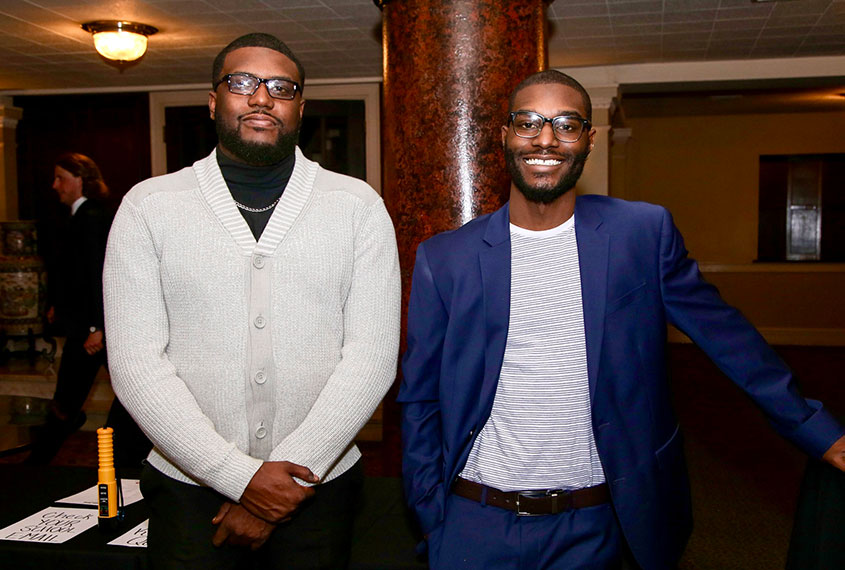Campus Supervisors Brandon Hemphill and Nelson Brown are so integral to Shorewood High School that principal Tim Kenney wants to change their title. “I’m trying to get them to call themselves Campus Relations Experts, because they are SO MUCH MORE than Campus Supervisors,” Tim says with emphasis. Nelson and Brandon are in a unique position to bond with students of color through the student group they advise, Youth Rising Up. SHS senior and current YRU president Alemitu Caldart explains, “Nelson and H are the best people; they do so much for all the students, but sometimes they don’t get the recognition they deserve when some of the teachers treat them like campus security guards.” “H” is what the students call Brandon, who doubles as a teaching assistant for the New Horizons charter school-within-a-school at SHS. Brandon states, “I would say I’m very good verbally with calming everyone down. We have a rapport with the students, so we really are the best ones to call when there’s a disagreement.”
Tim explains that Nelson and Brandon are liaisons to the administration, and they head off problems before they escalate. “Kids confide in them, they’re huge role models who keep our campus safe in the hallways and in common areas.” Brandon credits former assistant principal Mark Harris, who passed away suddenly in 2014, with recognizing he had it in him to draw students out of their shells and get to the bottom of what was really going on. Mark initially asked Brandon to talk to the students about racism, then took him under his wing and taught him how to build relationships and trust with the students. “Brandon is great at building those relationships with students, so you will find oftentimes the kids just gravitate to him and his energy,” says Nelson.
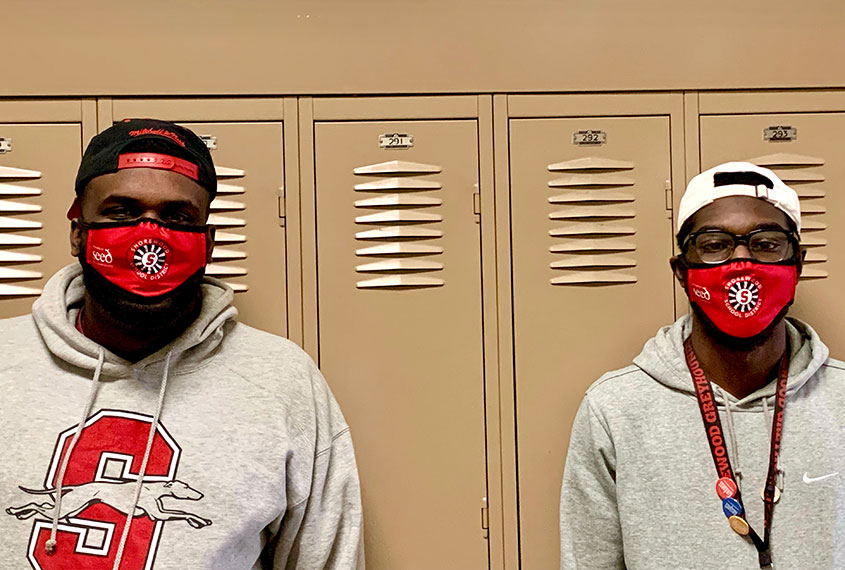
Nelson describes their role as a bridge between administrators and the student body. “Best put, my job is to build relationships with as many students as possible so we can make their transition through high school a smooth one.” He has been in this role since 2012, and is currently in school himself finishing up a networking degree so he can transition to the IT department. Brandon is a 2006 graduate of SHS, and is presently working on his teaching certification. However, both realize they are destined to remain a sounding board for the students no matter how their titles may change over the years. Tim confirms, “I definitely want to keep them both in the district, and both will eventually move on to different roles within the district,” but the position he calls Campus Relations Expert is never going away, it’s too valuable.
In 2016, Nelson and Brandon were prompted to create a student group as a natural extension of their official capacities. Tim remembers the origins of the group being student driven, with Black students wanting to create a Black student union. Nelson recalls that more African-American students were expressing the need to have a group similar to student council that would listen to their interests. Black students didn’t feel represented, and they wanted a better relationship with the school. As the group convened, they decided they didn’t want to exclude anyone, and made membership open to everyone. Thus Youth Rising Up was born.
With such an inspirational title, one would think Youth Rising Up is a chapter of a national organization, but it’s not. It’s a Shorewood High School original, run by two Campus Relations Experts, during lunchtime on Wednesdays. “It’s a place for them to feel comfortable and congregate to talk about their problems, a safe haven for the kids,” Brandon says. “It gets them to focus and tune in to how they’re feeling, which helps them do their best work and communicate better with their teachers.” Nelson adds, “We talk about everything from problems that arise at home/in the classroom, all the way down to the current news of the day. We want our students to know that at the very least they can come and talk to us about things if they feel they can’t turn anywhere else.” YRU meetings are still as popular as ever during COVID, the group just meets virtually on Zoom instead. “We still try to have the same enthusiasm and energy we would if we were in person,” Nelson says. “Having the ability to still see faces certainly does help!”
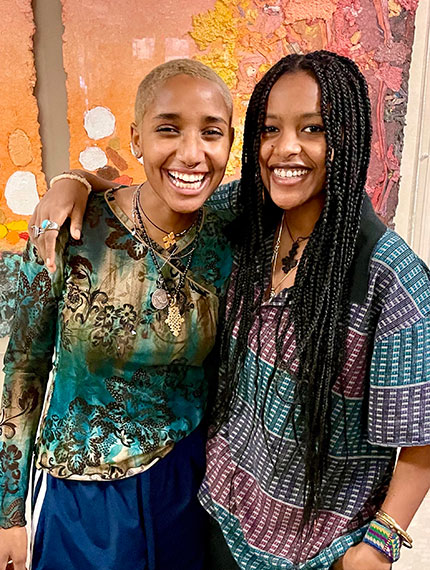
Current SHS senior and YRU president Alemitu Caldart and best friend Hiwot Schutz both joined as freshmen. They say it started out more as a club, a place for friends to gather and talk about things they weren’t comfortable discussing with their teachers. Alemitu says she is so grateful to have Nelson and Brandon as advisors, “they’re the only teachers I talk to about anything.” Hiwot says that many Black students experience racism in and outside of school, and want to get to a place where they can talk about it in every class. “We often feel like our voices aren’t heard,” she says. Until then, Brandon and Nelson are always there to listen.
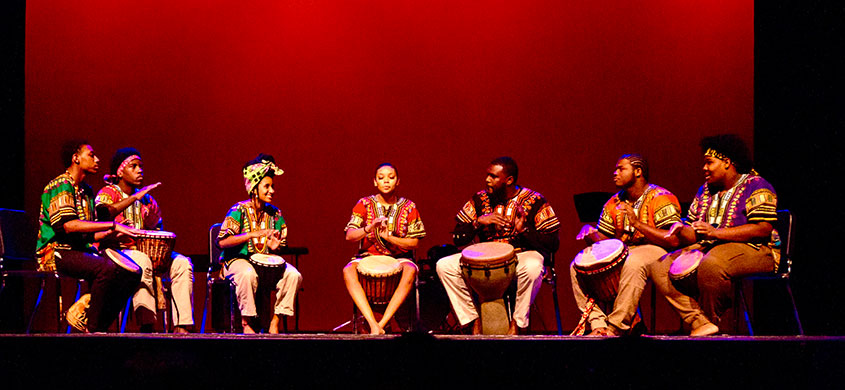
To become more visible in a positive way, YRU members produce a program for Black History Month yearly in February that includes educational and cultural performances, poetry, singing, dancing, and highlights Black leaders. Nelson says he and Brandon started these productions in 2014, and YRU naturally adopted them when the group formed in 2016. This year the students are committed to making the program work in a virtual environment, and have produced a documentary style film about Black history that the school community can watch virtually on YouTube. “We have a schedule with the times students are coming into the school to record their part while following COVID guidelines. Everyone wears a mask except when filming and is socially distanced,” Alemitu explains. “We are also recording things at home if students can’t come to the school.” You can watch their moving and inspirational student production here.
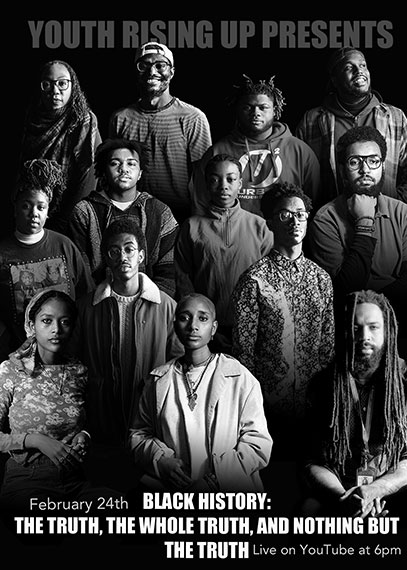
The group also has a mentorship program with Shorewood Intermediate students. Pre-pandemic, “YRU would typically go down to SIS and meet monthly with a group of 7th/8th graders,” Nelson says. The high school kids were there to ease any fears the middle schoolers had about transitioning to high school. “We give them a chance to see some kids who not only look like them, but could also talk and relate to the experiences they were going through.”
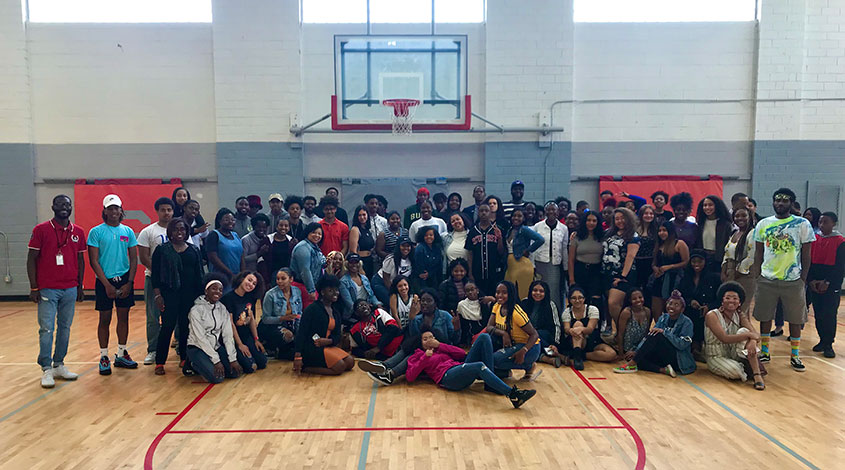
The dynamics of Youth Rising Up changed abruptly in 2018 due to controversy surrounding the SHS drama department’s production of Harper Lee’s To Kill a Mockingbird. Principal Tim Kenney defers to Nelson, Brandon, and the YRU students to tell the story. “Use their words, I don’t want to whitewash what happened,” he says. Brandon says he and Nelson tried to voice their concerns about performing the play due to the hurtful and divisive language, which couldn’t be altered due to copyright laws. “If kids hear the ‘N’ word 45 times on stage, and they already don’t feel like they’re being heard, it’s going to feel like a slap in the face,” Brandon says. “It’s more than just a word- it’s a word that belittles me and makes me feel small,” and it would make Black students feel the same.
The group had around 30 members at the time, which was the majority of Black students at SHS, and many felt uncomfortable about the prospect of hearing that word being spoken on stage by their classmates. Hiwot explains, “The school already didn’t address racism, and the play was giving kids permission to say the word casually.” She says a student in one of her classes had racist tendencies and chose to say the “N” word around her, and nothing was done about it. “I felt like the play was pitting Black students against white students, when it’s really right versus wrong,” Hiwot says. Alemitu recalls that To Kill a Mockingbird was the only book about race taught in her literature class, and her teacher said they could say the “N” word for educational purposes, which didn’t sit well with her at all. “This is not the kind of literature we should be using to explain Black culture,” she says.
Brandon says the play put him and Nelson in a very awkward position. “We had to tell our bosses that what we warned them of was coming true, this is a real life situation now!” It was a challenge to advise the kids on the most effective way to express their feelings. “You can’t combat hate with hate, you have to fight hate with knowledge and love,” Brandon told them. It was an educational process for teachers too. “Certain teachers feel like they can’t talk about racism in class because they’re not Black. They’re afraid to say the wrong thing and get destroyed by the students.” Brandon tells them, “That won’t happen if you build a relationship with the kids.”
Hiwot remembers attending a “huge conversation in the auditorium” like it was yesterday, and invoking the courage within herself to speak on behalf of Black students in front of administrators, the school board, community members, SHS alumni, and Black Panther members and leaders from Milwaukee. She was only 16 years old at the time. The controversy was covered by local media, and Black students were thrust into the spotlight. “Youth Rising Up turned into a political group” through that experience, she says. “Black students felt like they had to put all of this work into the school to defend their race, when it should be a fun, safe space.” Nelson recalls, “That event really woke up a lot of students and gave them the motivation they needed to speak their truths.”
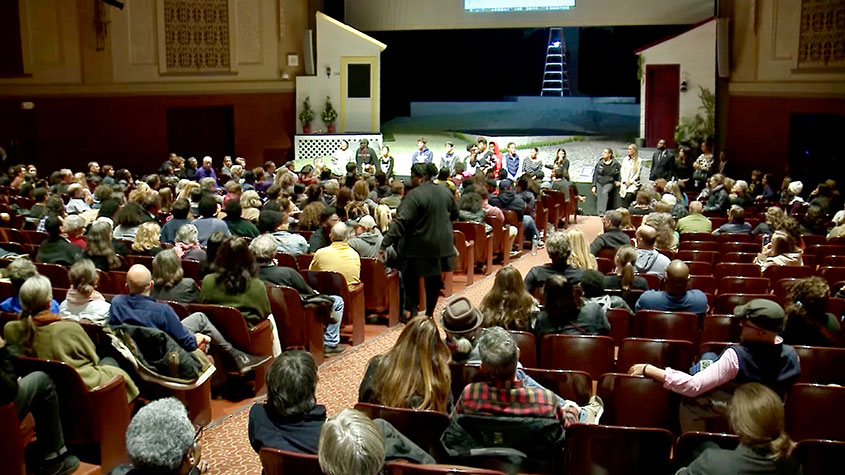
Administration ultimately decided to cancel the play hours before it was to be performed due to the controversy. Tim admits, “I had an in depth look while working with these kids about the gravity of what we were about to do without having thought it through fully beforehand.” Brandon says he saw YRU student leaders grow up right before his eyes through the upheaval surrounding the play. “They turned from little kids into little adults through that.” Youth Rising Up wasn’t founded with activist intentions, but “if that’s what the kids care about, we’ll support them,” Brandon affirms.
Resolving to learn and grow from the incident, the district regrouped and advised creating a new position, Director for Equity. “This position would develop and administer the district equity plan that will serve students, staff, and the community,” wrote Superintendent Bryan Davis in his proposal to the School Board in early spring 2019. The board approved the position in April 2019, but there was little funding to support it late in the school year. Bryan knew he could count on SEED’s record of strong support, so he asked SEED to fund $105k over a two year period to get the right candidate hired as Director for Equity as soon as possible. With SEED donors’ help, Sam Coleman was hired and started in this position in June 2019. You can read more about Sam’s equity work with the district here. In addition, a student penned article about Sam’s priorities appears in Shorewood Ripples.
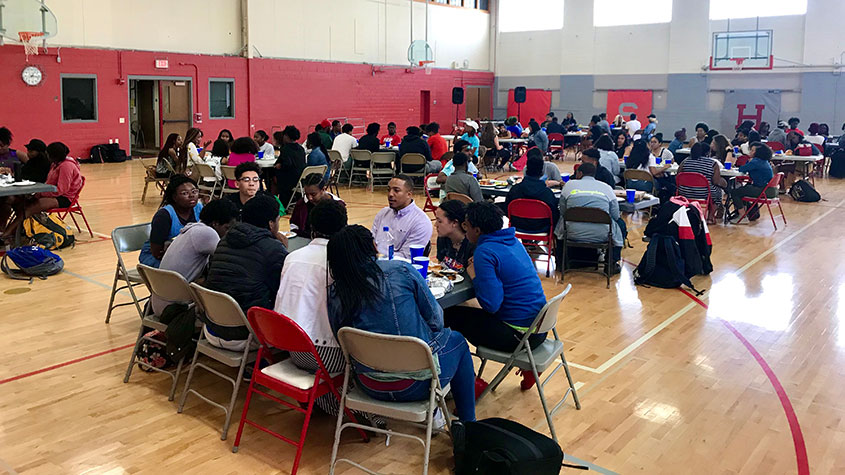
Around this time, Nelson decided to apply to SEED for a grant that would provide more programming opportunities for Youth Rising Up students. SEED awarded $5k to the group, which was initially intended for a tour of historic Black colleges. However, the money took the group much farther. Not only was Nelson able to take 6 seniors on the college tour, but the grant also funded guest speakers for Black History Month, a luncheon with Black alumni, and books about prominent African-Americans that YRU members use during reading sessions to Atwater and Lake Bluff Elementary students. They were even able to put on a “Living Museum” event for elementary kids where they purchased costumes and dressed up as famous Black leaders while a tour guide pointed out why they were important to history. Due to SEED donors’ generosity and community fundraising throughout the year, Youth Rising Up has not had to ask administrators for any funding, though Tim assures he would support that wholeheartedly if it becomes necessary.
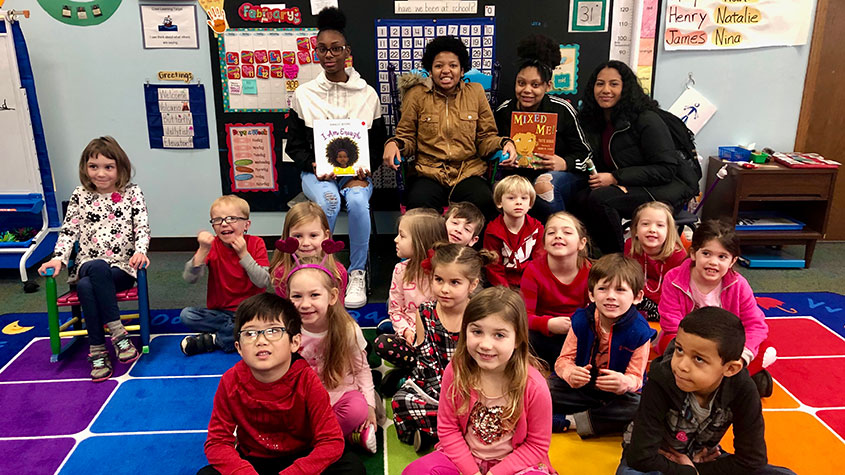
After the controversy over To Kill a Mockingbird, racial tension continued to escalate throughout the nation over the next couple years, culminating with the killing of George Floyd by a Minneapolis police officer in May 2020 that sparked a summer of protests and riots. Nelson chooses the students’ response to the senseless killing as a standout moment in the group’s evolution. “Seeing all the work the kids put in over the summer to organize and rally when George Floyd was killed… was a true testament to their passion and dedication to the BLM movement,” he says. They stood firmly by their beliefs as they tirelessly organized events in support of Back Lives Matter in Shorewood over the summer. “Since the beginning of YRU, Brandon and I have always stressed that by the time they leave high school, we want them to be able to advocate for themselves and others, because once they leave the safety of SHS there won’t be people like us to do it for them,” Nelson explains. “I am really proud of all of the work they have put in on their own behalf to advocate and organize for themselves. At the end of the day, that is exactly what we want all of our students to be able to do.”
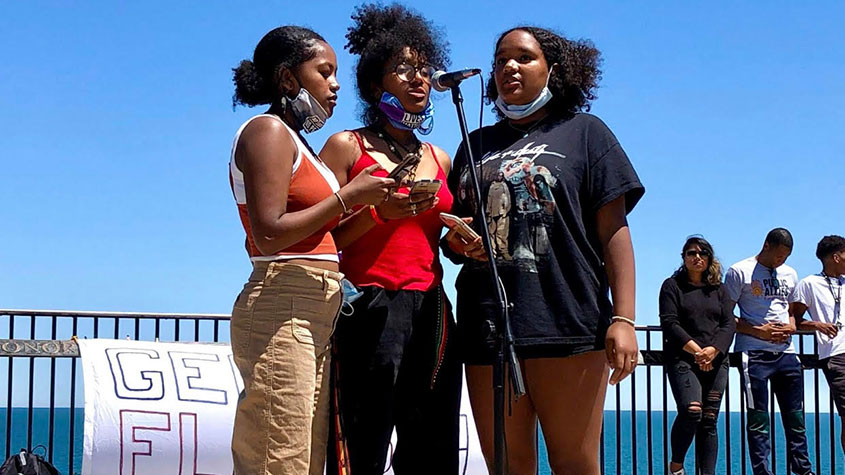
The district’s response to YRU’s newfound activism has been supportive and collaborative, as students of color are encouraged to give more input on hiring decisions and curriculum development. Tim describes the district’s hiring philosophy as emphasizing equity principles. “I have responded to requests from the students which resulted in the hiring of a teacher of color in a number of positions,” he says. Since 2018, he has hired 9 certified teachers of color and 4 additional staff members for the high school. Encouraging Black educators to apply for open positions is another focus. “When I have a position that comes open, I tap into my existing network of educators that are connected to candidates of color to encourage application to the positions. This has been a fairly successful recruiting technique which has resulted in some of my current employees,” he explains.
Hiwot was invited to interview candidates to fill the district’s Director for Equity position when Sam Coleman was promoted to Director of Curriculum and Instruction. She advised hiring Shari Tucker, which the district did, because Shari made it clear to the student interviewers that Black students should have an equal say in the decisions made at the top of the school system. “I really value the efforts the school is making to hire more Black staff, I think it shows they are finally listening to us and acting on it, as well as ensuring the comfort of future Black students in Shorewood,” Hiwot says.
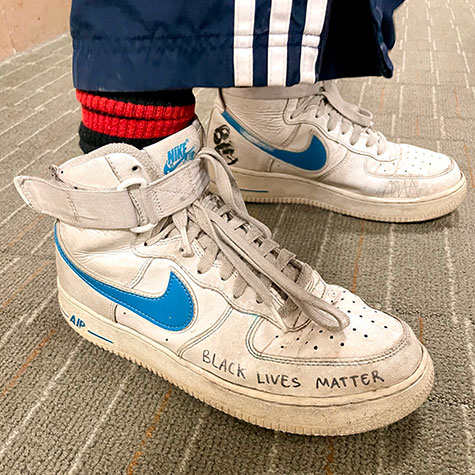
The resilience and fortitude exhibited by these students is something to behold. Tim concurs, “I have watched Youth Rising Up evolve beautifully over the past few years. The group has responded to what’s happening in the world around them, and is full of student leaders. As freshman and sophomores, it’s more of a place to hang out. As they get older and their future is right in front of their faces, that has a profound way of solidifying what they want in life. They see things happening and feel they have to stand up for what’s right.” When asked how heavy the burden of racial equity work is to a teenager, Alemitu replies, “I’m doing this work so my sister can just go to high school and not have to worry about this.”
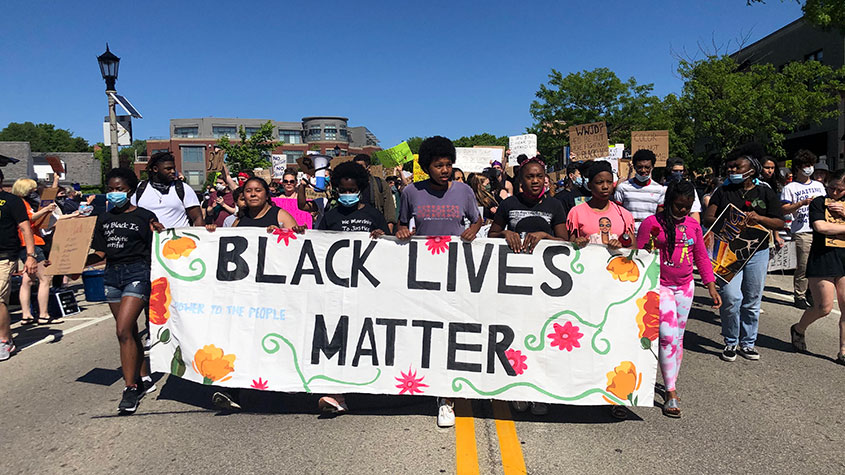
“I certainly see the group continuing their focus on activism,” Nelson predicts. “COVID certainly threw a wrench in some of the plans the group wanted to accomplish this year, but we are making the best of it. Our main mission right now is to continue to ensure that the voices of all students are fairly represented in classrooms at all schools across the district. We continually meet with the School Board and Dr. Davis to address any concerns that may arise and to keep them up to date about some of the things we are doing as a group.”
Whether at the administrative level through the Director for Equity, or facilitating change that arises organically through Youth Rising Up, SEED donors believe that the hard path to achieving racial equity is worth the journey. Nelson Brown, Brandon Hemphill, and the students of Youth Rising Up are shining examples for all of what can be achieved with engaged leadership and students passionate about their cause. SEED relies on donors like you to continue to support this important equity work in the Shorewood School District. Please donate to SEED today.
Tax ID Number: 04-3750042

